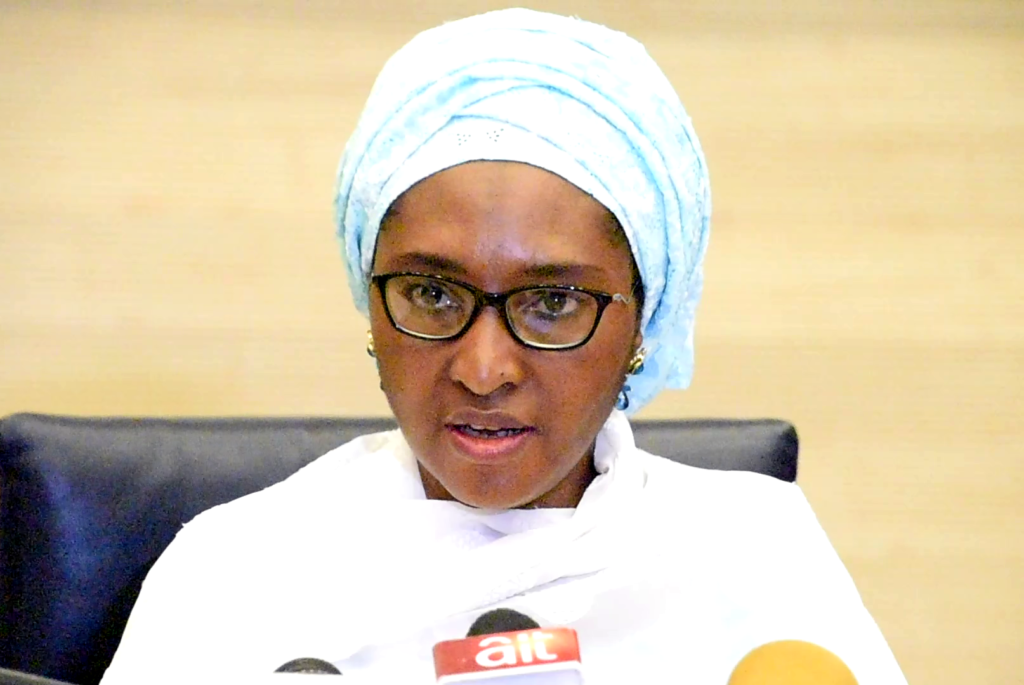By Omobayo Azeez
The Nigerian economy is fast showing signs of shrinking and plunging into recession as deficit for financing of federal government’s revised N10.509 trillion 2020 budget rises to N4.563 trillion from N1.847 trillion earlier projected.
This means that of the appropriated total expenditure of government in the year, only N5.943 trillion equivalent to 57 per cent will be generated, while 43 per cent will be borrowed for the government to meet the budget target.
Pointers to this emerged during a defence session held on Monday by the Senate Committee on Finance with heads of the country’s revenue generating agencies on the revised 2020-2022 Medium Term Expenditure Framework ( MTEF) and Fiscal Strategy Paper ( FSP) .
In separate presentations made by heads of the revenue generating agencies led by Zainab Ahmed, the minister of finance, budget and national planning, earlier targeted revenues from all the relevant agencies have been drastically slashed in the new proposals.
Besides, 77 per cent of the newly proposed revenues from the various sources like the Nigerian National Petroleum Corporation ( NNPC), Federal Inland Revenue Service ( FIRS), Nigerian Customs Service ( NCS) is for debt serving.
Specifically, the Minister in her response to a question on the likelihood of recession said: “Very clearly the Gross Domestic Product (GDP ) has been reduced because of the economic crisis we found ourselves in, but Nigeria is not alone in this.
“The global economy is predicted to be also slipping into recession. What we are hoping to do by our own collective efforts – the Executive and the National Assembly – is that we minimise how far we go into recession.
“National Bureau of Statistics ( NBS) , has made an assessment that we will go into recession to the level of 4 per cent.
“So some of the work that the Executive is doing is preparing a stimulus package as remedy , so that if it happens maybe we are going into 0.5 per cent or 1 per cent not going much lower. That is our unfortunate reality and the reality of the global economy.”
The slashed projected revenues for the various agencies include the N1.5 trillion earlier proposed for Nigeria Customs Service now reduced to N950 billion, N463 billion earlier projected as stamp duty revenues for FIRS now reduced to N200 billion, N1.222 trillion earlier projected for NNPC’s federally funded projects now reduced to N48 4 billion .
However, Solomon Adeola, chairman of the committee, in his closing remarks after the session said some of the new proposals may not be adopted as requested .
He said: “Having listened with rapt attention to all presentations made by the minister for budget and national planningand the questions asked regarding the MTEF and FSP, I believed that members of the Committee are satisfied with reasons being offered by the minister on why we have to go this direction at this point in time.
“But Honourable Minister, we are still waiting for that Economic Stimulus grand document by the committee headed by the Vice-President of the Federal Republic of Nigeria, because what that documents intends to do is to keep the economy going in the aftermath of COVID-19.
“Secondly all related documents which we have requested as a committee ranging from the special accounts, to the deficit document as explained by the DG budget office, it is expected that the documents get to us in no distant future.
“Also on the issue of the stamp duty, yes the Senate is to investigate the Stamp Duty Account with the Central Bank of Nigeria, that motion has been passed by the Senate for the Committee on Finance to investigate and we will not hesitate to investigate because there is need for us to get to the root of this matter regarding the cashless transaction.
“For the FIRS, yes, there is a proposal that about one hundred and something billion should be removed from your budget of N1.8 trillion under the company income tax, but I am happy to announce to you that we are not going to reduce it and that it is expected that you bring in the money.”










